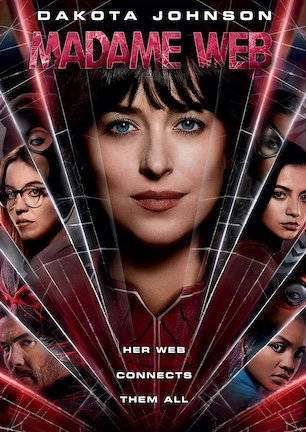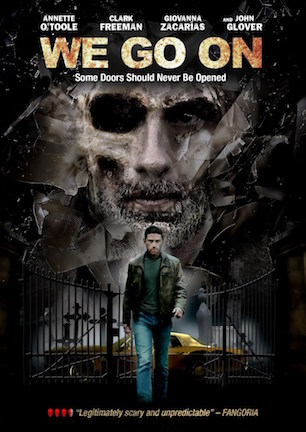Studio: Renegade Studios
Director: Tim Russ
Writer: Ethan H. Calk, Sky Conway, Jack Trevino
Producer: Sky Conway
Stars: Walter Koenig, Adrienne Wilkinson, Sean Young, Manu Intiraymi, Gary Graham, Robert Picardo, Corin Nemec, Bruce Young, Tim Russ, Chasty Ballesteros, Edward Furlong, Courtney Peldon, Larissa Gomes, Richard Herd, Herbert Jefferson Jr., Crystal Conway
Review Score:
Summary:
Believing that the Federation may be involved in a conspiracy, Chekhov and Tuvok assemble a secret team of outcasts and rogues to bring down a planet-destroying warlord.
Review:
“Star Trek: Renegades” is the second feature film/backdoor pilot produced by Renegade Studios as an unofficial entry in Gene Roddenberry’s traditional TV Trek universe. Being unsanctioned by Paramount or CBS, “Renegades” is technically classifiable as a fan film, but how many other independent efforts do you know with $375,000 in crowdsourced production funds? Coupled with the involvement of “Star Trek” alumni onscreen and industry professionals behind the scenes, calling “Renegades” a fan film is like calling planet Earth a rock: technically accurate, though not entirely indicative of scope.
In 2007, Renegade Studios released “Star Trek: Of Gods and Men” (review here), an even slimmer budget “what if” featuring notable names like Walter Koening and Nichelle Nichols in front of the camera and Tim Russ behind it. To label “Of Gods and Men” as rough around the edges would not only be magnanimous, it would be an understatement. But being the first live-action classic continuity Trek tale in over 10 years, “Of Gods and Men” eked out enthusiasm from fans excited to see familiar faces, even if the amateurish visual look and fan fiction screenplay compelled hands to cover eyes and slap foreheads.
For 2015’s “Star Trek: Renegades,” the production company compatriots of returning director Russ and returning co-star Koening have somewhat solved one of the previous problems by mercifully ramping up the FX to warp factor nine, or at least something that looks like it was crafted on contemporary computers. Unfortunately, that large leap forward is undercut by the two taken backward with a script so pedestrian it requires a crosswalk.
The year is 2388, when a mysterious new planet appears and another two disappear. Admiral Chekhov is convinced that a savage alien warmonger named Borrada is responsible for the vanishing worlds, but Starfleet is suspiciously content to sit on its bureaucratic hands and do nothing. Believing the Federation has been compromised, Chekhov and Tuvok reason that the only way to crack this conspiratorial cabal is to create one of their own. So they assemble a ragtag crew of expendable rogues, renegades, and misfits to operate under the radar as a covert Black Ops team.
A Star Trek version of “Suicide Squad” or “The Dirty Dozen” is a cool concept. Less cool is the script’s overreliance on establishing its characters through heavily expository dialogue. Look over a few lowlights in these example exchanges:
· “I don’t need a Betazoid listening to my thoughts.”
· “You still don’t know? Genetic defect. I’m not telepathic.”
· “But you were a Borg.”
· “I was. Until Voyager found me. They took it all away … When I got back to Earth, Section 31 found me and they convinced me to join the program to help those that had survived assimilation.”
· “My work killed someone and got me banned from Starfleet and ostracized by the scientific community.”
· “You are the great Lewis Zimmerman, creator of the emergency medical hologram.”
The lead villain even delivers a “this is how my master plan works” monologue that would make Blofeld blush. Virtually no one in “Renegades” is capable of communication unless they are explaining backstory bits or offering origins. None of these words serve character development. They function merely for character identification.
So which of these is the correct spelling?
“Renegades” also suffers from the side effect of wanting to double as a pitch pilot for a potential series. As a result, the movie ends up stuffed with subplots and needless personalities that might become meaningful in future installments, but serve no practical purpose in the film at hand. This is one line making balanced evaluation of “Renegades” challenging.
“Renegades” has trouble satisfying as a standalone story because many shoehorned elements never pay off. Time spent separating plot points among multiple characters when just one person would do distract from straight arrow action, which would be more thrilling. There is no narrative need for someone such as Chekhov’s great-great-granddaughter to ever appear, though given that the young actress playing her has the same last name as the producer/co-writer, one wonders if she is included specifically for that reason.
So many admirals, crewmembers, and unidentified enemies come and go that deaths don’t register and traitorous reveals regarding seldom-seen characters lack dramatic impact. With threads darting in all directions, Borrada ends up as a terribly underdeveloped threat since he only appears in two quick scenes before capturing and confronting the (anti)heroes. Running out of time to get where it needs, the script is forced to forego sensible plot beats in favor of faster ones, such as a starship captain conveniently forgetting that an adversarial crew has a shapeshifter aboard. Fool me twice… we can’t get fooled again.
However, judged as a webseries pilot, the big bite “Renegades” tries chewing is more understandable. Decorating the table with second and third tier personalities, as well as meta arcs and mini arcs, is par for the course when establishing an ongoing series. Coming at it from that angle, “Star Trek: Renegades” accomplishes more as a stage-setting premiere episode than it does as a solo movie. What are flaws for a feature are features for subsequent episodes.
As mentioned earlier, the visual FX in “Renegades” are of an incalculably higher quality than they were in “Of Gods and Men.” Outer space actually looks like the outer space of Star Trek’s galaxy and firefights are kept manageable, usually with ships engaged only in one-on-one confrontations instead of flooding the screen with more action than assets can handle.
Set design, on the other hand, is noticeably constricted. Some locations look little bigger than a closet or a kitchen, making for ridiculous physical staging when four feet of distance still means no one can land a single phaser blast. When one woman flees around a corner, her normal-speed stride resembles a “Baywatch” slow strut since she only has three steps to work up a run.
“Baywatch” is a fitting reference, since “Renegades” harkens to that seemingly ages ago televised style where action is made melodramatic through slow-motion and canted camera angles, which often only accentuates how overwrought such moments are. “Star Trek: Renegades” would indeed fit nicely between “Earth: Final Conflict” and “Andromeda” in a Saturday syndication block… if it were still 2002.
Which is the for better or for worse bottom line about “Renegades.” “Of Gods and Men” got away with its low-rent look because the novelty of Uhura and Chekhov back in action rendered quality concerns less important. With that hump hopped, and with visual FX no longer siphoning the bulk of negative attention, dismal writing now takes center stage when it was previously the least problematic issue.
Therefore, the budget-challenged presentation and substandard script of “Star Trek: Renegades” cannot help but earn instant thumbs down from discerning genre fans. Yet there are still those of us carrying candles for fondly regarded shows such as “War of the Worlds” or “Psi-Factor: Chronicles of the Paranormal” who conversely cannot help but be swayed by the syndicated sci-fi style, no matter how dated it might be. Truth be told, even though the preceding paragraphs read like a list of knocks against the production, I’d still watch “Renegades” regularly if/when it comes to series simply because it strikes that nostalgic touchstone of memory.
As “Of Gods and Men” did, “Renegades” rates higher than it objectively earns because of its subjective appeal for someone of a mind to appreciate potential in spite of underachievement. A favorable score is more for its moxie than for its merits as a movie.
It is impossible to argue in this case that “Star Trek: Renegades” is a movie made mainly for its direct supporters, and they are inherently inclined to find it in line with expectations for pro-am Star Trek entertainment. Provided that Kickstarter and Indiegogo backers are as generous with their forgiveness as they were with their wallets, of course.
Review Score: 70







If you want to see impossible amounts of blood explode crimson colors like the world’s worst version of a gender reveal, well, “Abigail” at least has that.